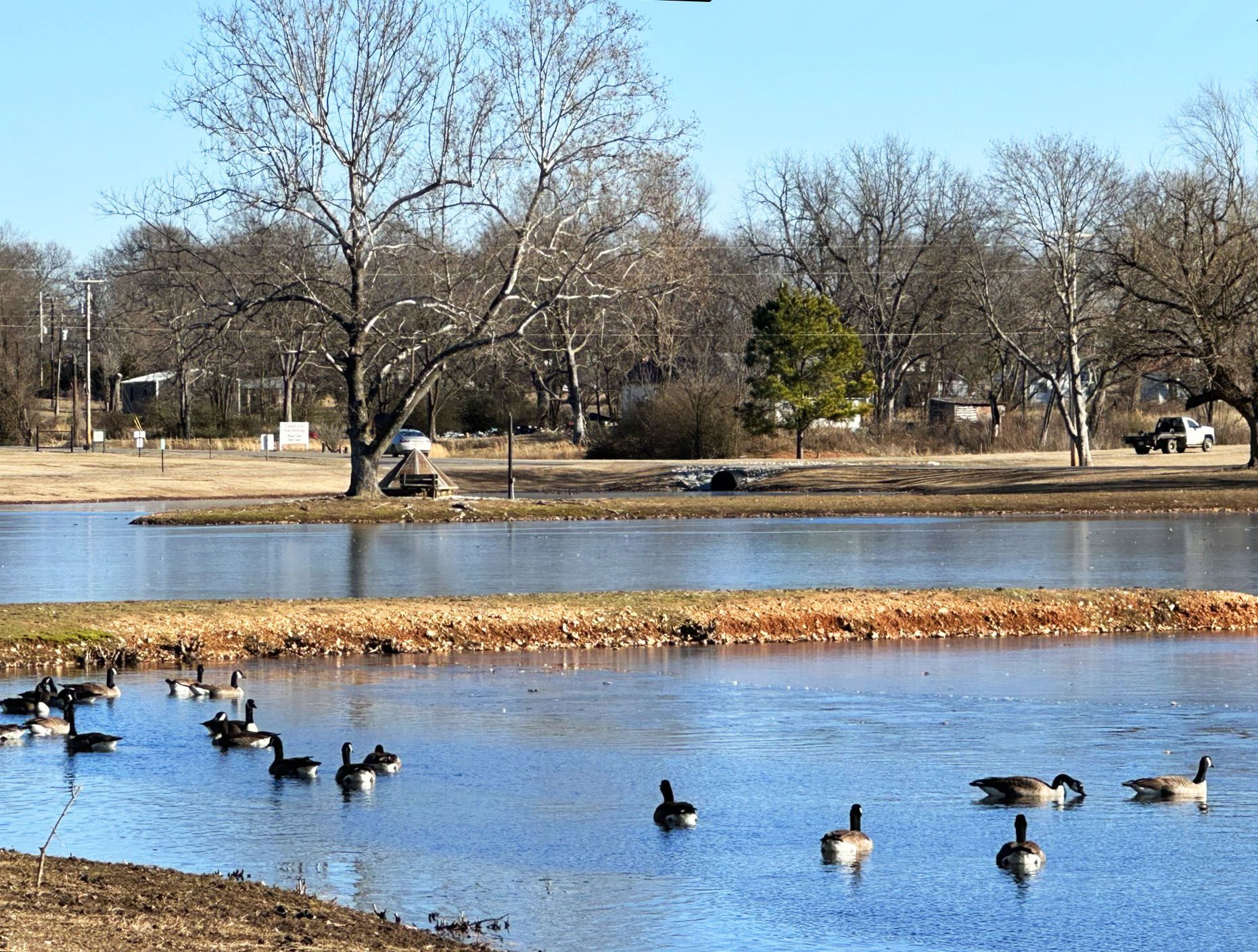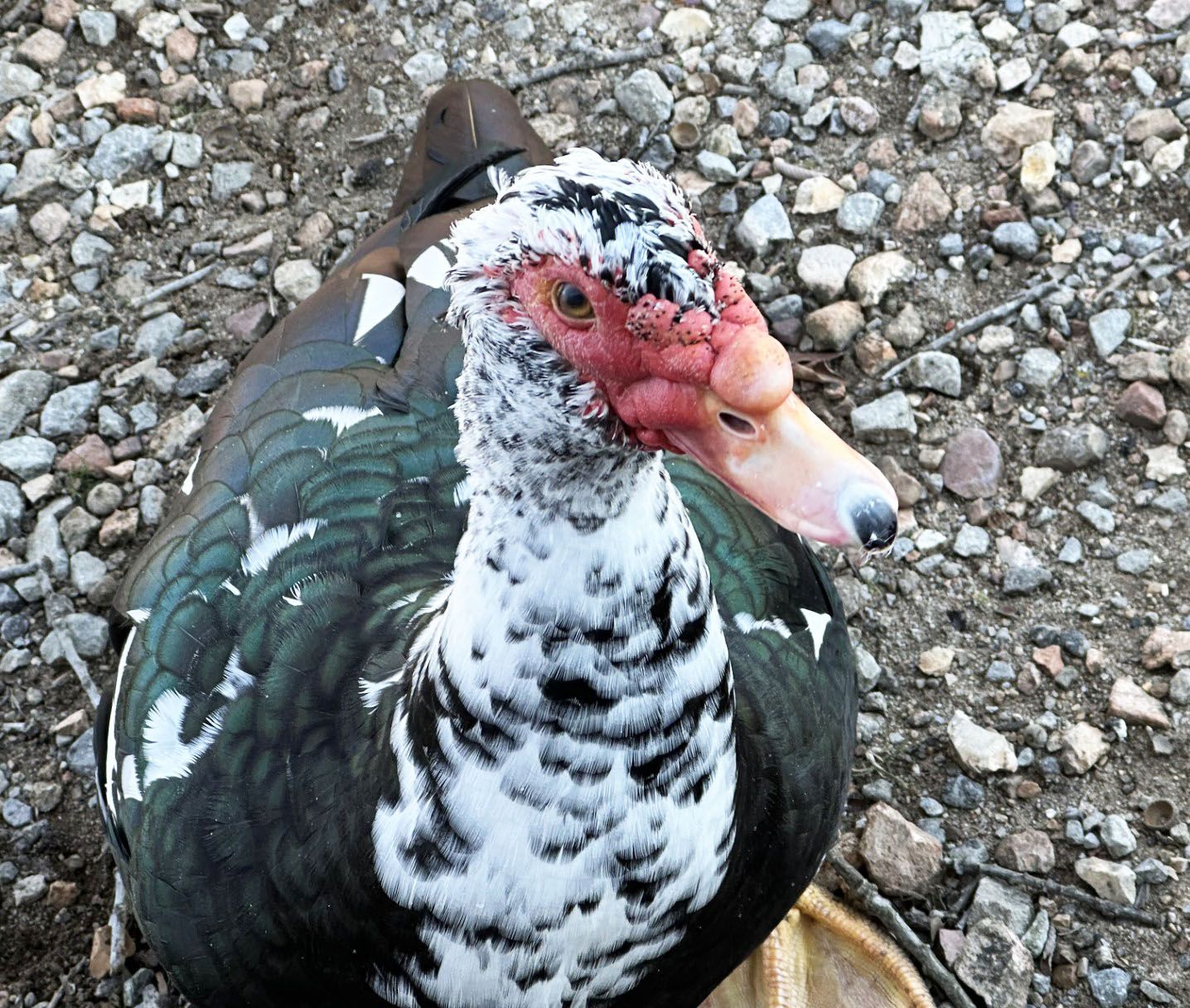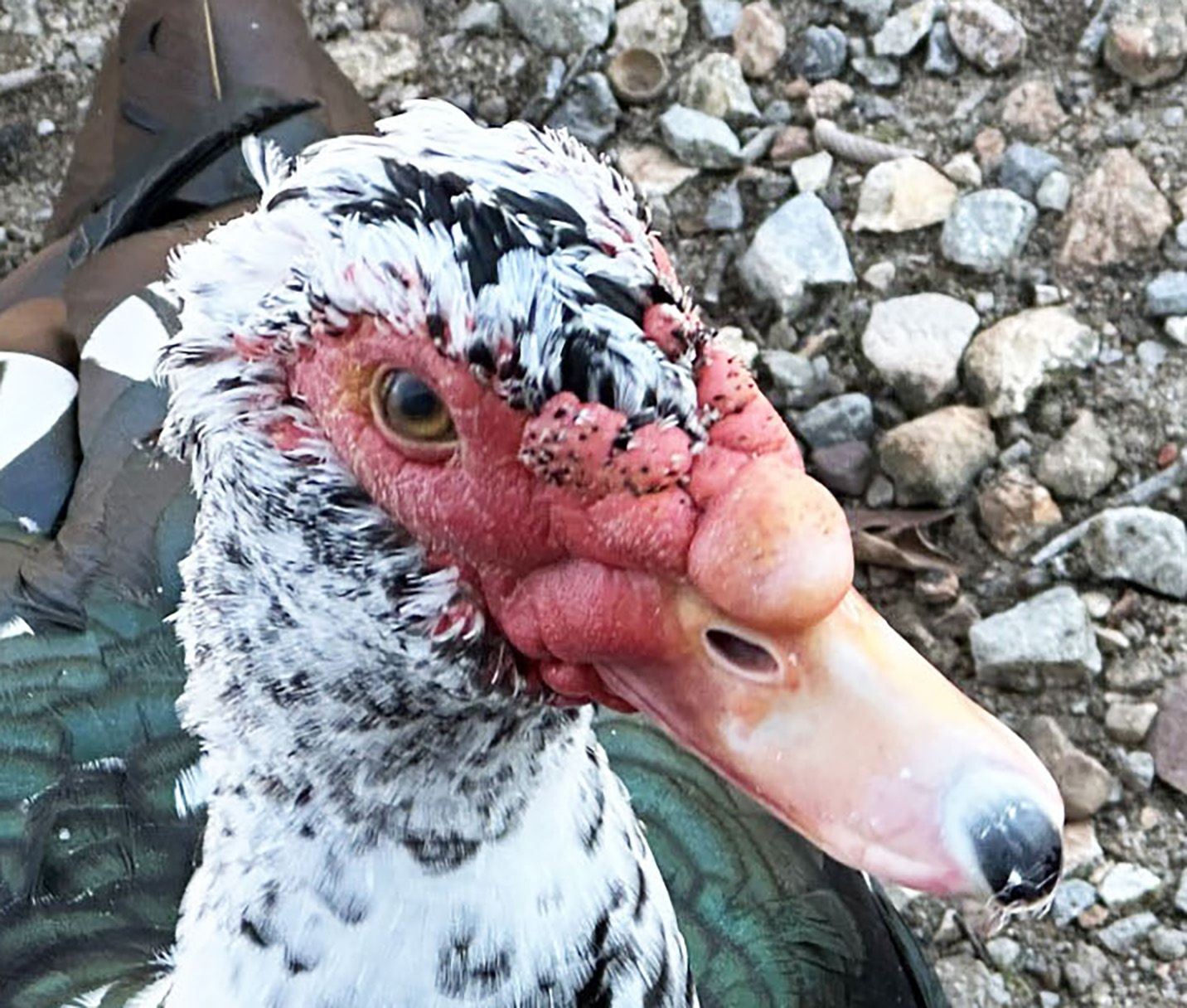Foul Fowl
by Renee Fite
City of Stilwell Director of Public Relations and Media
Adair Park features a pond for fishing, which is also home to migrant and domestic ducks and geese throughout the year. Many citizens have grown up at the park and enjoy the wildlife. Feeding them is also a fun activity many enjoy, and the city encourages healthy options rather than “people food.”
There are two types of fowl at the park, the resident fowl which stay there year-round, and the migratory birds, those that come in spring and leave, and then return in the fall, said Director of Community Development Shawn Noel.

Wild waterfowl were seen graceful gliding across the Adair Park pond.
photo: Renee Fite

Above: A Muscovy duck. Ducks and geese are friendly at Adair Park, but sometimes obnoxious when seeking food. It is recommended they be fed only duck or goose food.
photo: Renee Fite
The resident fowl were dropped off at some time by someone, he said.
“Our theory is that someone had them at their house and either did not want them or could not care for them, so they brought them to the park to set them free,” Noel said.
The migratory birds do come and go.
“They are a handful when they are here, primarily due to the fecal matter they leave behind. We do try to keep their stay short, however, they come and go on their schedule,” said Noel.
The city has considered options to remove the often-foul fowl.
“We have looked at ways to keep them from invading the park, but they have proven to be ineffective. We are on their migratory path and we deal with the issues associated with them being here,” Noel said.
All wild waterfowl are federally protected.
“If you shoot them or harm them in any way you could be looking at serious consequences at the federal level. We do not allow hunting them in the park due to the area being so close to residential areas,” he said.
The city has made upgrades to the part a priority.
“We have painted and restored the bathrooms, we have cleaned up the playground areas, we cut the grass back to where the park can be used for various activities like fishing from the edge of the pond, utilizing the gazebo, playing various sporting games in the grass and using the playgrounds. We cleaned up the old ball field area to get rid of the dilapidated fencing, bleachers and lights. The pavilions have been updated as well and we have added another pier in the pond,” he said.
Aerators have been added to the pond.
“We have worked with fish and game and added fish to the pond and monitor fish life to ensure growth. We also worked to remove and relocate the Water Moccasins that were there in abundance and have cleaned up the fountain area. We are looking to either remove or revamp the fountain at some point,” said Noel.
Plans are in progress for additional improvements at Adair Park.
“We recently worked with a group of citizens in developing a plan for future expansion of the park. It is an extensive plan that includes more camping areas, walking paths, signage that can identify different foliage and some historical information about the area, an event area and more parking,” he said.
“We are proud of what we have done in the park over the past four years and continue to try to improve the park in the areas that we can within our budget.”
Regarding the feeding of the waterfowl, it should be only what is natural to them.
“It is recommended by the Wildlife Department that we do not feed the animals at all. The feeding of bread and other various people's food can cause health issues with the waterfowl. If there is a strong desire to feed the birds, please purchase waterfowl food from a local reputable feed store,” Noel said.
Another resource for fowl facts is Wildlife Technician with Oklahoma Wildlife Department, Junior Kester.
“A lot of the migrant and wild ducks, their diet is going to consist of aquatic invertebrates and aquatic vegetation, and they will also eat some grains when they migrate to the south,” said Kester.
A wild duck is very opportunistic, he said.
“It will eat a small frog or small fish, whatever they can get their mouth around,” said Kester.
Wild geese are more vegetarians, and like to go into the cut grain fields, he said.
“Fowl found at Adair Park are sometimes domestic. If not wild, it’s a different ball game with domestic animals about what they’ll eat,” said Kester.
“Peas or something out of your garden, I don’t know that you’ll find many wild ducks that will eat it, but that’s a better question for a vet.”
Kester said on occasion the Wildlife Department will get a call about too many geese or ducks in a pretty pond in a city.
“Cities will call and ask what can we do? We have too many ducks and too much poop. We have Nuisance Wildlife Control Operators for cities that want that help and will work with third party contractors,” he said.
For more information go to Wildlifedepartment.com.
Veterinarian Yalonda Burton said food that’s made for them is best.
“They like to land eat peoples crops and what grows naturally. Processed food is not the best, and not a bag of frozen peas,” Burton said. “It’s best to feed them livestock food.”
Burton also said to be aware of the wild fowl if they look unhealthy. “Migration of bird flu is spreading across Oklahoma,” she said.



